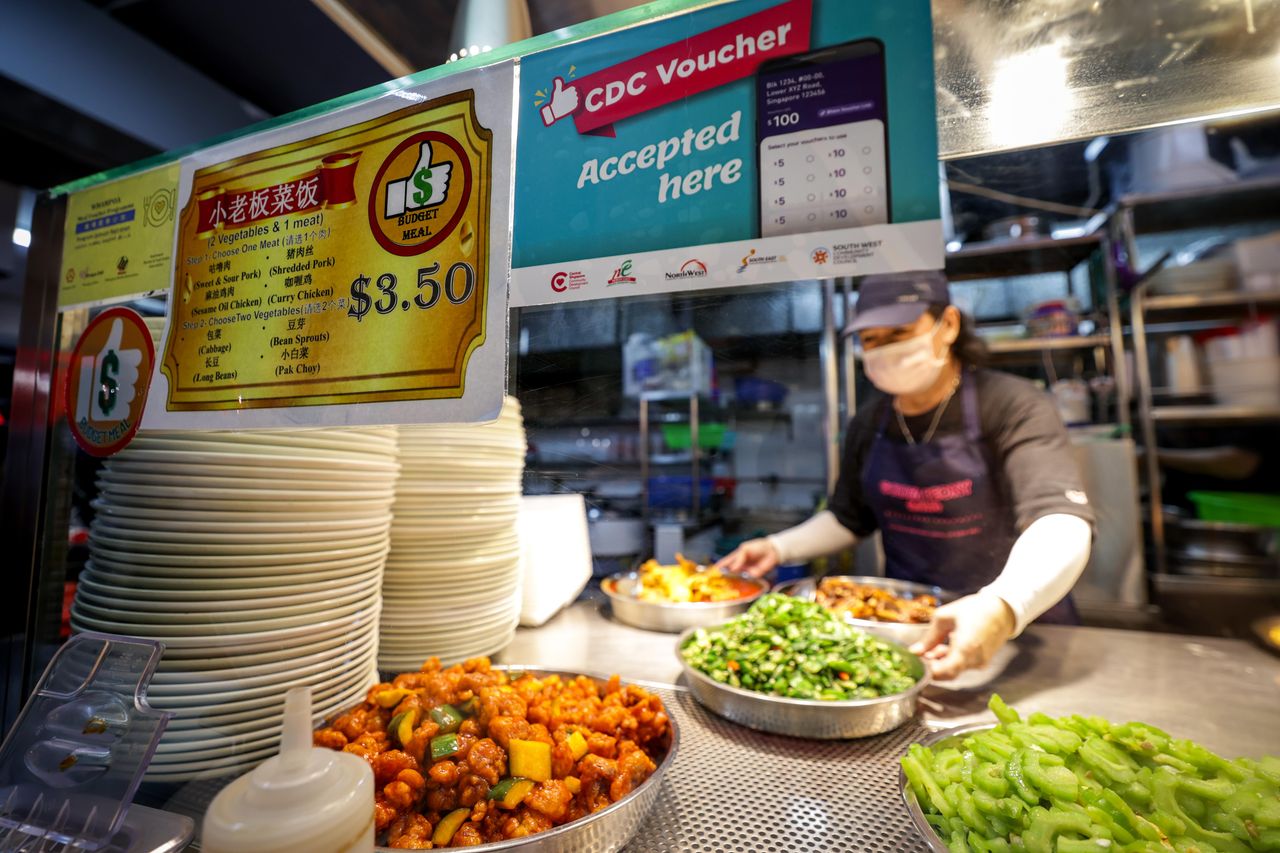SINGAPORE’S core and headline inflation came in lower than expected in October, data from the Monetary Authority of Singapore (MAS) and Ministry of Trade and Industry (MTI) showed on Monday (Nov 25).
Year on year, October’s core inflation – which excludes accommodation and private transport – was 2.1 per cent, sliding from September’s 2.8 per cent. This was due to a moderation in services, electricity and gas, and retail and other goods inflation.
The reading also came in under the 2.5 per cent median forecast in a Bloomberg poll of private-sector economists.
Meanwhile, headline inflation eased to 1.4 per cent from 2 per cent in September, and was below economists’ median estimate of 1.8 per cent.
“This was driven by slower accommodation inflation and a steeper decline in private-transport costs, in addition to lower core inflation,” MAS and MTI said.
On a month-on-month basis, both the core and overall consumer price index (CPI) fell 0.3 per cent in October.
BT in your inbox

Start and end each day with the latest news stories and analyses delivered straight to your inbox.
Outlook differences
The authorities maintained their 2024 full-year core inflation forecast at 2.5 to 3 per cent, and their headline inflation forecast at around 2.5 per cent. MAS and MTI also maintained their 2025 projections, at 1.5 to 2.5 per cent for both core and headline inflation.
While they continue to expect accommodation inflation to come in lower next year, their latest outlook excludes the reference to moderating leasing demand, which was noted in their previous inflation report.
The authorities did not discuss the impact of labour cost increases in the latest outlook. Previously, they said “the pass-through of earlier increases in labour costs to consumer prices has largely peaked and is expected to continue at a reduced pace”.
Key CPI categories
In line with weaker inflation in October, lower inflation was recorded for most categories.
Services inflation eased to 2.3 per cent from 3.3 per cent, mainly on account of smaller increases in the costs of holiday expenses and healthcare services.
Electricity and gas inflation moderated to 2.5 per cent in October from 6.3 per cent in the preceding month, as the prices of both electricity and gas rose at a slower pace.
Retail and other goods inflation slowed to 0.1 per cent from 0.8 per cent before, driven mainly by a steeper decline in clothing and footwear prices as well as a fall in the prices of medicines and health products.
Accommodation inflation slipped to 2.5 per cent in October, from September’s 2.7 per cent, due to a smaller increase in housing rents.
Private transport costs fell at a slightly faster pace, recording deflation of 2.5 per cent against 2.4 per cent in September, on a larger decline in car prices.
On the bread and butter front, food inflation was unchanged at 2.6 per cent, as the prices of non-cooked food and food services rose at a similar pace in September and October.














